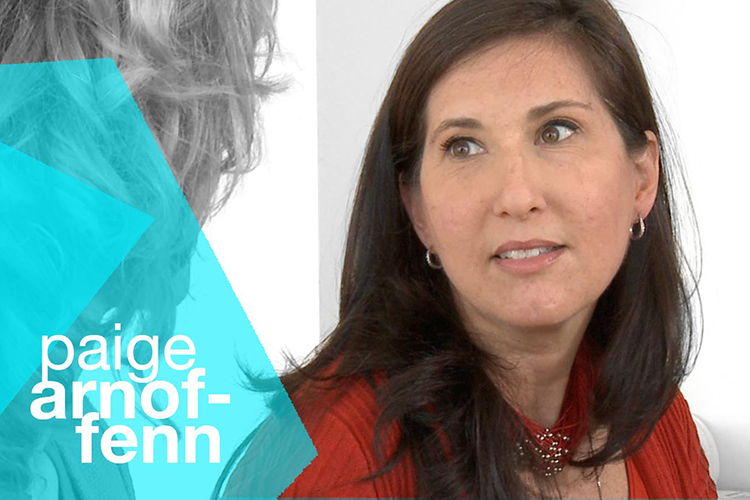I did not plan on starting a company. I always wanted to go work for a large multi-national business and be a Fortune 500 CEO. When I was a student I looked at leaders like Meg Whitman & Ursula Burns as my role models. My first job out of college was as a Financial Analyst on Wall Street in the ’80s. I knew pretty quickly it was not a good fit even though the pay was great but I had made a 2 year commitment to stay. I applied for business school and left at the end of my agreement with the hope of figuring out what I wanted to do career wise. I got a summer internship in marketing between my first and second year of the MBA program because I did very well in my marketing class during the first year. I could tell right away a career in marketing made a lot more sense for me, so post-MBA I worked at Procter & Gamble and then Coca-Cola. Then I left the corporate world to join the first of 3 startups and have never looked back. 16 years ago I started a global marketing firm and love running my own company. I had just lost my job and saw a business opportunity so just jumped on it because I had time.
It has been a lot of fun, I joke that I am the accidental entrepreneur.
People often ask me for career advice so here is what I have learned based on my journey so far:
Starting at a large company is a great way to build a strong foundation
It is always easier to move down the food chain vs. up. Large companies have more structure and hierarchy which can be frustrating and feel constraining at times but they also offer more formal training and career development which can make you more valuable down the road. Both P&G and Coke invest a lot of time into their staff so I was constantly being sent to professional development courses and conferences where I could learn about new trends and sharpen my skills.
Big companies tend to have bigger budgets so you can spend your energy building your business and investing in the brand not raising money. They expect you to work very hard, your calendar is not your own. Smaller companies and startups love hiring people with great training and experience.
They can offer upside potential and perhaps more autonomy whereas big companies may have steady paychecks and better benefits, there are always tradeoffs.

Paige Arnof-Fenn
Big companies expand your network
I was part of a “class” of new MBA recruits when I joined P&G, we were assigned to work throughout the company but we often met for lunch, training or social occasions. Although I joined Coke mid-career there were several colleagues at my level there too. Both businesses operate all over the world so I traveled a lot for work and met people constantly as part of my job. When you work for a large company, they can afford great talent and support from agencies and vendors too. Your role at a smaller company might be broader because you have to wear so many hats with a skeletal crew. The contacts I made in my corporate jobs continue to be invaluable to me today.
Be careful what you wish for
In my corporate life I was always trying to bend, break or change the rules. It used to drive my bosses crazy! Things move slowly in a corporate setting, too, there are layers of management for approvals and processes to do everything. When I joined my first startup in the mid-90s the Internet was just starting to scale and there was no roadmap yet. I had to build the marketing department from the ground up so there were no legacy issues I inherited at all. I was classically trained in the corporate world but the people I was interviewing for the department were not so I quickly went from being the rule breaker to the rule maker trying to put some process in place so we could measure what was working. Instead of being one of the young new recruits now I was the senior person in the group and older than the founders and almost everyone else.
No one told me what to do I had to set the vision and make a plan for my team to follow.
It is a good thing I had worked my way up and paid attention in all those training classes because I had to teach my team what to do in real time and things were moving fast! We did not have to wait months for data and results like in the corporate world, everything is measurable online so we pivoted as needed.
Coming full circle
After building 3 successful startups the timing was right for me to launch my own brand. I knew I had great experience and training and had done it for other businesses but when it is your company the stakes are even higher. The first people I called to help and join me were those contacts from earlier in my career. I knew we worked well together and could hit the ground running. Many of my early clients and referrals came from my startup days too, your reputation and work ethic are your biggest assets as an entrepreneur. We were busy from the start but it took me 20 years of hard work and paying my dues to be perceived as an overnight sensation.
In my experience there are not any shortcuts to success but there are plenty of detours along the way.
I’ve learned the most valuable lessons during the tough times not when things are going smoothly. That is when you find out what you are made of and how badly you want something to happen so learn from every setback and mistake.
I love running my company and working for myself. I feel I have built a robust platform to do meaningful work I enjoy. I exercise everyday and spend time with family, friends and hobbies I enjoy. There is no one path to success so define what success means to you and don’t be scared to edit your definition as you go. I thought I wanted to run a big public company but it turns out building a small business that reflects my values and allows me to lead a more balanced and integrated life is what makes me happy. Find what matters to you and see where that path leads!
Feeling inspired?
Here are 10 Tips To Start Your Own Business:
1. Find a market need
Is your product or service a nice to have or have to have? What are your customers doing to fix the problem now? Are you competing with a free solution? What is the potential size of the market? How much money will it cost to bring your idea to life? Time to do your market research!
2. Test the concept with real customers
When real customers are willing to pay real money for your product or service, you have a real business. Do not ask your friends and family they will not want to hurt your feelings. Keep iterating until you get it right. Listen to all the feedback especially ones with negative input.
3. Reserve URL
You need a name and a web site to be real. Names contribute to your brand and in our case I think it has been a major plus.
Maven is Yiddish for expert and a Mogul is someone of rank, power or distinction in a specified area. I like the alliteration and I think it sets us apart from other consulting firms. It shows a little personality & attitude and implies we do not take ourselves too seriously. Would you rather hire “Strategic Marketing Solutions” or Mavens & Moguls? We are the “not your father’s Oldsmobile” of marketing firms. If nothing else our name is a great conversations starter and getting into a conversation is all it takes to open a door.
4. Create the logo
Once you have a name you need to design a look and feel so your customers can find you and you look professional. It will on you new site, stationery, invoices, business cards, etc. Add a tag line and value proposition too. It will help you stand out from the pack.
5. Build your brand story
What are the reasons to believe in your business? Do you understand the features vs. the benefits? Are there different brand personas? Every brand has a story to tell.
6. Generate buzz
You cannot afford to run TV ads so leverage social media and find ways to get your story out there through blogging, articles, webinars, speeches, newsletters, etc.
Public relations is the most cost efficient way to get the word out. Be a Thought Leader in your category.
7. Get reference clients & customers
You need testimonials and people to vouch for you so even if you have to offer discounts at first find your audience so you can get the kinks out of the system as quickly as possible. Sales are where the rubber meets the road. Otherwise it is just a hobby not a business.
8. Overdeliver
Execute with excellence and always offer great value and customer experience. When you are trying to change behavior it helps to give a little more than they expect so they want to come back again for more.
9. Get referrals
When they have a positive experience they are more likely to tell others. Encourage them to share it on social media or offer them something to come back and help spread the word. If things did not go as planned make are you fix it right away, you can turn them into fans and keep bad reviews or service from being shared. It is the cover up not the screw up that kills brands so make amends immediately.
10. Fill pipeline & repeat
Once you know your sweet spot for ideal clients replicate that formula to find more and start to scale. You may find some customers are longer term lead times than others or there could be seasonality in your business (such as a strong 4th quarter for retail). As the market changes you can conduct more research to see where new opportunities surface.
Digital Marketing & Social Media Internship Seminar in Madrid, Spain

